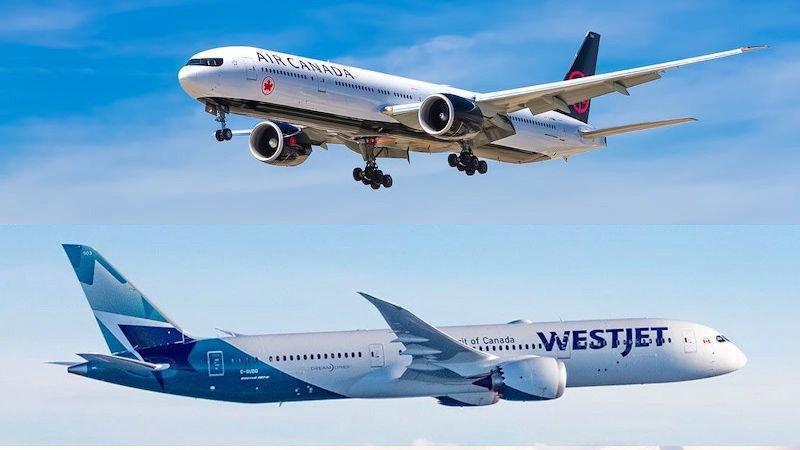
Three major airlines have announced significant cuts to their flight schedules, reflecting a decline in travel demand for routes between Canada and the United States. Despite previous plans for expansion, the ongoing slowdown in cross-border traffic has prompted noteworthy changes.
WestJet Cancels New Austin-Vancouver Route
Canadian carrier WestJet has officially scrapped plans for a new non-stop service between Austin, Texas, and Vancouver, British Columbia. The decision comes in response to a “downward shift in demand” for travel between the two countries. Originally set to launch on May 11, 2025, the seasonal route was expected to feature three weekly flights, as reported by KXAN.
A spokesperson for WestJet stated, “Due to a downward shift in demand for U.S. travel, we have made the difficult decision to suspend scheduled direct service between Vancouver and Austin.” However, the airline indicated that it would review opportunities to serve this route in the future, mentioning that Air Canada currently offers the same service.
Air Canada Pulls Back from Montreal-San Francisco Expansion
In addition to WestJet, Air Canada has put plans for expanding flights between Montreal and San Francisco on hold. According to insights from Cirium, the airline will revert to its previous winter schedule, maintaining a single daily flight between yield management and operational feasibility.
During a Zoom meeting with tourism representatives from California, Visit California president and CEO Caroline Beteta highlighted that air arrivals from Canada to California saw a decline of 15.5% in March compared to the same month last year. This statistic underscores the ongoing challenges in cross-border travel.
Impact of Tariff Disputes on Air Travel
The struggle for air travel recovery between Canada and the U.S. is also exacerbated by lingering tariff disputes. JetBlue has recently decided to forgo its plans to introduce new flights between Boston (BOS) and Halifax (YHZ), further illustrating the adverse effects of the current trade environment on air traffic.
Conclusion: A Challenging Landscape for Airlines
The recent decisions by major airlines to scale back their operations highlight a persistent downturn in demand for transborder travel. As WestJet and Air Canada adjust their flight schedules in response to these market dynamics, industry stakeholders will be watching closely to see how these adjustments will shape the future of air travel between Canada and the United States.


